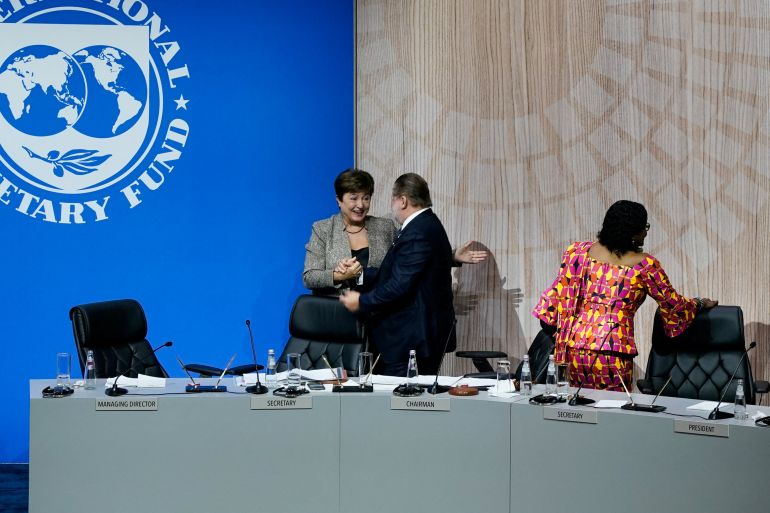IMF wants Egypt to make reforms before bailout review: Report
IMF wants Cairo to privatise state assets and allow flexibility in its currency, Bloomberg report says.

The International Monetary Fund wants Egypt to enact more of the reforms that Cairo has committed to before it conducts the first review of the country’s $3bn rescue package, Bloomberg News has reported.
The Washington-based lender wants Cairo to privatise certain state assets and allow flexibility in the Egyptian pound to make sure the review is successful, Bloomberg reported on Sunday, citing unnamed people familiar with the matter.
Keep reading
list of 4 itemsIMF forecasts Pakistan’s economy to slump, inflation to rise
IMF chief says global growth ‘not enough’
UAE tells IMF it will support Pakistan with $1bn, says minister
IMF Managing Director Kristalina Georgieva said last week that the fund was preparing to carry out the review but did not say when it might take place.
Egypt is required to pass the review to access the second tranche of its loan worth about $354m.
Jihad Azour, the IMF’s director for the Middle East, North Africa and Central Asia, said during a press conference last week that a flexible exchange rate would help protect Egypt’s economy from external shocks and the state should allow the private sector to “create growth and create more foreign currencies”.
The IMF in December announced a deal to provide $3bn to debt-ridden Egypt over nearly four years, including immediate access to $347m.
Gulf allies including Saudi Arabia, Qatar and the United Arab Emirates have also offered support, although billions of dollars in pledged investments have yet to materialise as they seek clarity on the progress of the country’s financial reforms.
Egypt’s economy has been hammered by rising oil and food prices due to the aftermath of the COVID-19 pandemic and the war in Ukraine, with the Egyptian pound losing half of its value against the dollar since March.
About one-third of the country’s 104 million people live in poverty, according to government figures. Many Egyptians depend on state subsidies to keep basic goods like food affordable.
As part of the IMF deal, Cairo has agreed to sell stakes in several dozen state-owned companies this year and pledged to shift to a flexible exchange rate, although the pound’s stability has raised questions about the government’s commitment to its reforms.